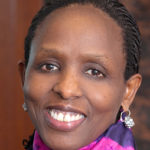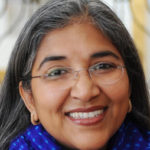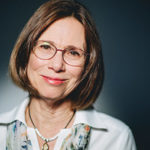Feeding 10 Billion on a Warming Planet
Video Description
The global food system is responsible for one third of greenhouse gas emissions. Meanwhile, climate disruptions are projected to lead to a 17 percent reduction in crop yields by 2050–the same year that the world’s population is expected to reach 10 billion. With limited land and destructive, intensive farming practices in place, how can we feed the world without exhausting its natural resources? Meet agriculture leaders who are innovating to adapt to a warming climate and developing agricultural practices to avoid future climate impacts.
Speakers
-
Director and Chief Technology Officer, Mahyco
Dr. Usha Barwale Zehr is Director and Chief Technology Officer at Maharashtra Hybrid Seeds Company Private Limited (MAHYCO), India. She received her Ph.D. from University of Illinois at Urbana-Champaign. Subsequent to her formal education, she worked at Purdue University in the Sorghum improvement program. She has been utilizing new technologies and tools including biotechnology for improving the quality and productivity of seeds and agriculture. In addition, Dr. Zehr serves as Director of Barwale Foundation (a non-profit Research Foundation). She also serves on the Board of the Donald Danforth Plant Science Center and Alliance for Green Revolution in Africa.
-
In 1999, Willy Foote founded Root Capital, a nonprofit social enterprise that invests in small and growing agricultural enterprises to build the resilience and prosperity of rural communities in Africa, Latin America, and Southeast Asia. Through Root Capital’s provision of capital, training, and market access, millions of farmers have been able to grow, thrive, and create opportunities, with over USD$2 billion in loans provided nearly 1,000 agricultural businesses, with some 2,500 receiving technical advisory services. This collective impact has benefited over 10 million people in farming families.
-
Director, Stanford University
Debra is focused on achieving a more just and sustainable economic system through collaborative action, human centered design and transformational systems change. She serves on the Boards of the Skoll Foundation, B Lab, IDEO.org, Imperative 21 and the global advisory boards of the African Leadership University and the Wellbeing project. She also works as an advisor to social ventures around the world.
Pre-Covid, Debra was a faculty member at Stanford University's d.school where she co-founded the FEED (Food Entrepreneurship, Education and Design) Collaborative.
Pre-Stanford, Debra was a business executive at Hewlett Packard where the common threads in her broad, 22-year career were driving large scale change, creating new businesses and producing positive social impact and good business results concurrently.
-

President, Alliance for a Green Revolution in Africa
As President of AGRA, Dr. Kalibata leads the organization’s efforts with public and private partners to ensure a food secure and prosperous Africa through rapid, sustainable agricultural growth, improving the productivity and livelihoods of millions of smallholder farmers.
Prior to joining AGRA in September 2014, Dr. Kalibata was Rwanda’s Minister of Agriculture and Animal Resources (MINAGRI). Dr. Kalibata has held several other leadership positions, including Permanent Secretary of Ministry of Agriculture and Deputy Vice Chancellor of University of Rwanda. She also worked for the International Institute of Tropical Agriculture in Uganda, and various other agricultural development organizations. She sits on various boards, councils and commissions including the Global Commission on Adaptation, the Global Commission on the Economy and Climate, the Global Panel for Agriculture & Food Systems for Nutrition, the Global Agenda Council of the World Economic Forum, the Malabo-Montpellier Panel, the International Fertilizer Development Corporation (IFDC), Bioversity International, Africa Risk Capacity Board, and the Strategic Advisory Council of the International Food Policy Research Institute (IFPRI), among others.
Dr. Kalibata has a distinguished track record as an agricultural scientist, policy maker and thought leader. She was awarded the Yara Prize, now the Africa Food Prize, in 2012, Honorary Doctorate from the University of Liège in 2018 and will receive the National Academy of Sciences’ Public Welfare Medal in 2019 for her work to drive Africa’s agricultural transformation through modern sciences and effective policy thereby improving livelihoods of stallholder farmers. She holds a doctorate in Entomology from the University of Massachusetts, Amherst.



